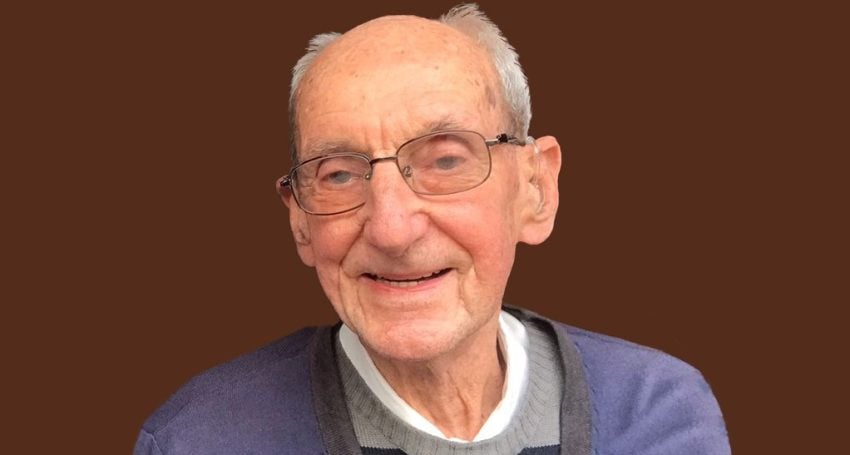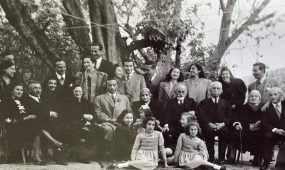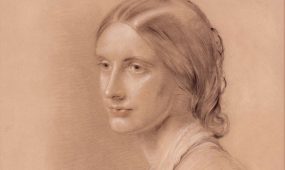My tribute to reluctant prophet, Albert Nolan OP
People & History
“I did the two-year whites-only compulsory military conscription as a ‘religious non-combatant’, but when required to do continuous military service one month per year, thanks to Albert Nolan and his contemporaries, I found the courage to declare myself a conscientious objector in the late 1980s, risking jail and worse,” says The Rev’d Nic Denny-Dimitriou

Few in Australia will know Albert Nolan (1934 – 2022) in the same way the late Anglican Archbishop Desmond Tutu is known. Yet Nolan was deeply engaged in the struggle that eventually brought democracy to South Africa in 1994 with the internationally revered Nelson Mandela as its first elected President. To help achieve this he worked as a religious leader, activist and theologian alongside contemporaries, including Archbishop Desmond Tutu.
Nolan was a distinguished member of the worldwide Roman Catholic Order of Preachers (OP), commonly known as the Dominican Order. The order includes nuns, priests, unordained brothers and lay tertiaries. Many Dominicans are theologians called to work in the justice spaces. Nolan received international recognition for his writings and ministry whilst South Africa was ruled by a white supremacist government with a policy of “apartheid”, an Afrikaans word meaning “segregation of races”.
Born Dennis Nolan in Cape Town in 1934 in a family of Irish descent, he joined the Dominican Order in 1954 and took the name Albert when he professed his final religious vows in 1958. Ordained a priest in 1961, he served in parish and chaplaincy ministry, later commencing work in theological education and writing.
He completed doctoral studies in Rome; however, because he deemed the cost of publishing his thesis a waste of money, the degree was not conferred. He was widely respected for this kind of humility.
The significance of his ministry is shown in several wonderful ways. In 2003 he received one of the highest Orders of Merit awarded to South Africans, the Order of Luthuli in Silver for his “life-long dedication to the struggle for democracy, human rights and justice and for challenging the religious ‘dogma’ especially the theological justification for apartheid”.
Just nine months after his death in October 2022, a compilation of tributes to his ministry, titled Reluctant Prophet: Tributes to Albert Nolan OP, was published. It was written by 71 authors, without repetition of accolades, from almost every theological tradition, including several Anglicans, a Roman Catholic nun who was professor of theology in an ecumenical university faculty, and a woman Pentecostal pastor who is also a doctor of quantum physics.
Advertisement
Many of the tributes in the book refer to Nolan as a “prophet”, which is reflected in the book’s title, Reluctant Prophet. As well as his humility, Nolan was known for his joyful disposition and inclusiveness, including towards those with whom he disagreed. In his foreword to the book, former Master of the Dominican order Timothy Radcliffe OP tells a story about a pub visit 40 years ago when Nolan visited Oxford, writing that his joy:
“…so overflowed that when the time came for the pub to be closed for the night, the publican invited us to stay on and share some more drinks with him. I had never had that honour before or since.”
Equally wonderful is another story of his deep humility when the Dominican Chapter elected him to the most senior role — Master of the Order. Having a deep sense of his vocation, he declined the position because he wanted to focus on ministering and advocating alongside the suffering people of South Africa awaiting liberation from apartheid’s violence.
He was instrumental in establishing the Institute for Contextual Theology (ICT). Through its publications, I first encountered his writings, together with those of Frank Chikane, a black Apostolic Faith Mission (AFM) church leader whom I often heard speak at events organised by the Anglican Church. Often detained by the Security Police, he was once physically assaulted by a white security police officer who belonged to the same denomination.
Advertisement
A primary focus for the ICT was “grassroots theology” — encouraging followers of Jesus to do theology in the context of their experience. For black South African people, this meant considering ways in which they understood God to be alongside them in the daily humiliations and denial of justice that characterised their lives, and ways of refusing to cooperate with institutionalised evil. It confronted real issues, such as asking how a professing Christian could physically torture a leader of their own church with the full sanction of the law.
The ICT was instrumental in publishing “The Kairos Document” in 1985, which was co-written and edited by Nolan. The landmark document is a statement of religious conviction from across the Christian spectrum that stripped apartheid of theological support and sought total liberation from it through nonviolent resistance. It challenged the Biblical underpinning for apartheid promoted by the Dutch Reformed Church (DRC), being almost uniformly the church to which white Afrikaners belonged, thus dubbed “The National Party at prayer”.
The South African National Party formed government following elections in 1948 after receiving only a minority of votes, but a majority of parliamentary seats due to “rural constituency loading”. With complete support from the DRC, they proclaimed that God had ordained their righteous victory even as they dismantled what little democracy existed in order to accomplish Biblically “ordained” separation of races.
The Greek word, kairos, meaning “God’s time”, was chosen as a key word in the title of “The Kairos Document”:
“We as a group of theologians have been trying to understand the theological significance of this moment in our history. It is serious, very serious. For very many Christians in South Africa, this is the KAIROS, the moment of grace and opportunity, the favourable time in which God issues a challenge to decisive action (p.7).”
“The Kairos Document” was in the tradition of Biblical prophets such as Isaiah and Jeremiah. In literary terms, it was like informing the emperor, of the famed childhood story, that he was naked. It provoked huge wrath and desperate political reactions; many of its authors were arrested, so Nolan went into hiding.
At theological college 1,000 km away, I recall Desmond Tutu, then Bishop of my Diocese of Johannesburg, visiting his ordinands and warning us that even more so-called liberal English-speaking white people would desert the Anglican Church in this time.
And even as some did, Desmond Tutu, Albert Nolan and hundreds of other leaders stood by the truth of the gospel in which racial segregation and cruelty of a ruling demographic towards others of different race had no place.
Nolan’s writings include the internationally acclaimed book, Jesus Before Christianity, in which he examined the person, life and teaching of Jesus, Son of God and Jewish man who lived in Palestine before the formal establishment of organisational Christianity. His teachings, like his life, death and resurrection, are not ultimately controlled by any institution. The book shows Jesus to be a man profoundly engaged with the real problems of his time.
Despite not knowing Albert personally, his writings and speeches greatly influenced me. Several people who wrote for the book of tributes were friends or colleagues. A couple of the writers are from families known to me in my teenage years in my family’s Roman Catholic parish and who introduced me to thinking theologically about social and political issues. I did the two-year whites-only compulsory military conscription as a “religious non-combatant”, but when required to do continuous military service one month per year, thanks to Albert Nolan and his contemporaries, I found the courage to declare myself a conscientious objector in the late 1980s, risking jail and worse. But that’s a story for another time.
Contextual theology, as espoused by Albert Nolan, has profound relevance to all followers of Jesus, in any place or nation. It challenges a veneer of private piety that acquiesces to political demands contradicting the gospel. It invites all Christians to reflect on how loving our neighbour can be made real in all spheres of life and inspires disciples of Jesus to work for the common good.
Editor’s note: The Rev’d Nic Denny-Dimitriou will be launching Reluctant Prophet: Tributes to Albert Nolan OP at St Francis College on Thursday 7 September at 3pm. This is a free event. Please register online.





